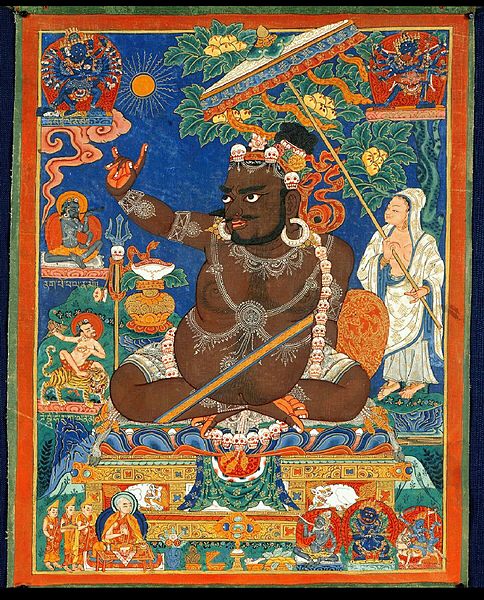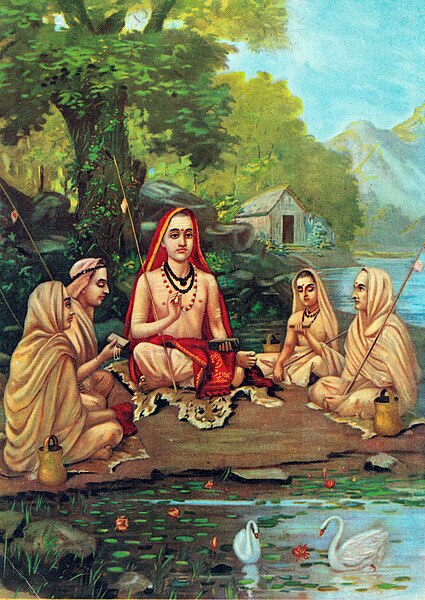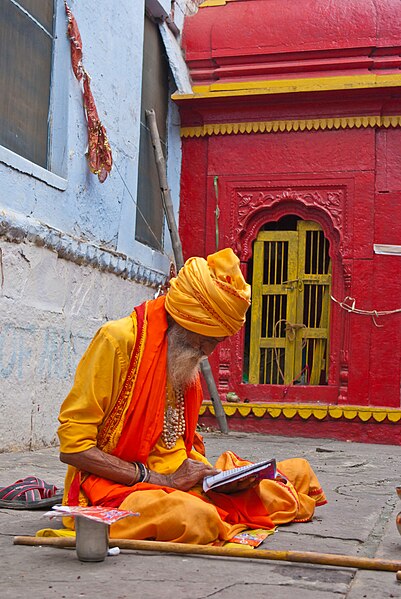Siddha is a term that is used widely in Indian religions and culture. It means "one who is accomplished." It refers to perfected masters who have achieved a high degree of perfection of the intellect as well as liberation or enlightenment. In Jainism, the term is used to refer to the liberated souls. Siddha may also refer to one who has attained a siddhi, paranormal capabilities.
The mahasiddha Virūpa, 16th century
Although the siddhas (the liberated beings) are formless and without a body, this is how the Jain temples often depict them.
Moksha, also called vimoksha, vimukti, and mukti, is a term in Hinduism, Buddhism, Jainism and Sikhism for various forms of emancipation, liberation, nirvana, or release. In its soteriological and eschatological senses, it refers to freedom from saṃsāra, the cycle of death and rebirth. In its epistemological and psychological senses, moksha is freedom from ignorance: self-realization, self-actualization and self-knowledge.
Gajendra Moksha (pictured) is a symbolic tale in Vaishnavism. The elephant Gajendra enters a lake where a crocodile (Huhu) clutches his leg and becomes his suffering. Despite his pain, Gajendra constantly remembers Vishnu, who then liberates him. Gajendra symbolically represents human beings, Huhu represents sins, and the lake is saṃsāra.
Jñāna yoga
Bhakti yoga
Rāja marga






